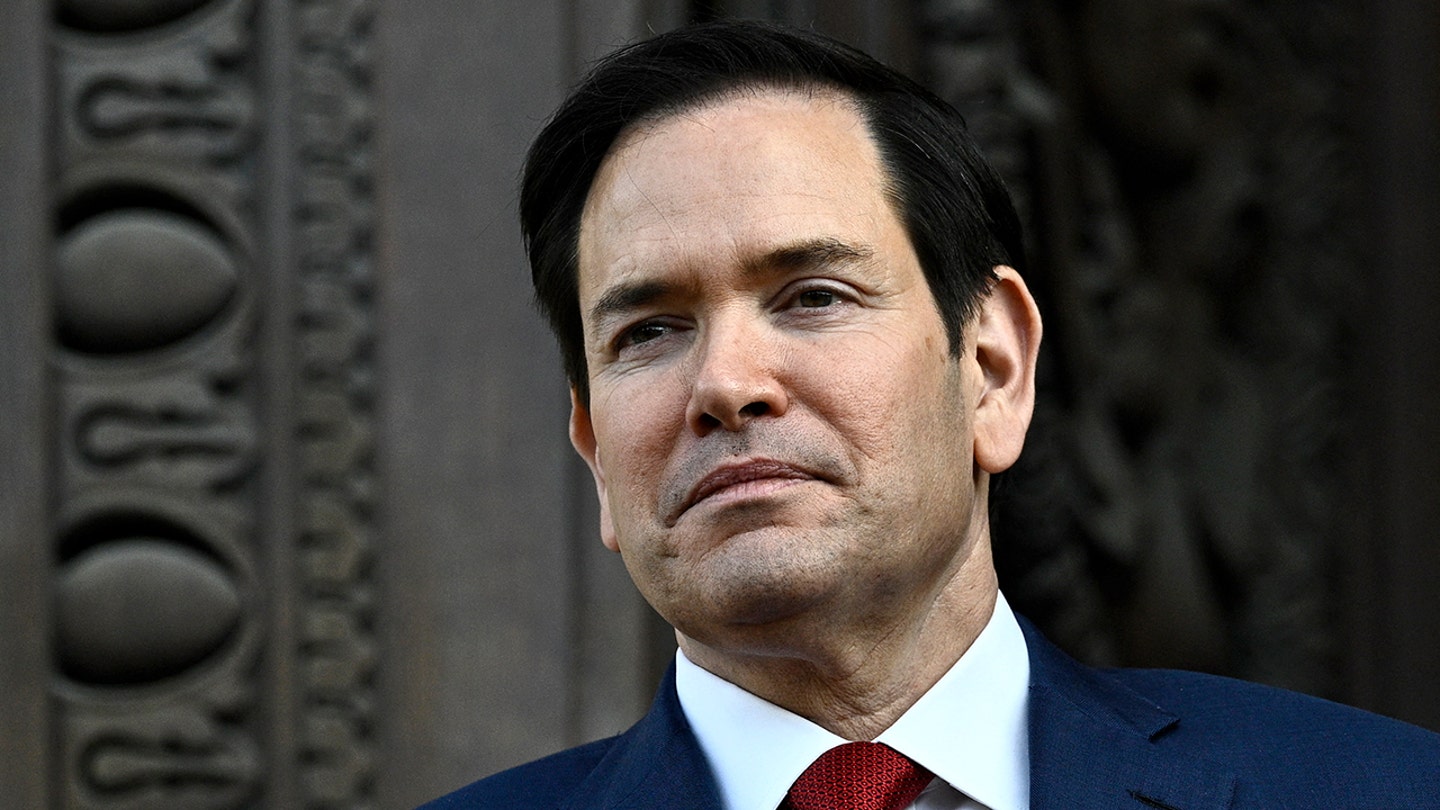
Cowboys owner Jerry Jones: Micah Parsons trade gives team 'chance to be better' than recent years
Entities mentioned:
- Jerry Jones: Power, Control, Professional pride
- Dallas Cowboys: Competitive spirit, Ambition, Recognition
- Micah Parsons: Ambition, Recognition, Self-preservation
- Green Bay Packers: Competitive spirit, Ambition
- Stephen Jones: Professional pride, Loyalty
- Kenny Clark: Professional pride, Competitive spirit
- Philadelphia Eagles: Competitive spirit
Article Assessment:
Credibility Score: 75/100
Bias Rating: 45/100 (Center)
Sentiment Score: 50/100
Authoritarianism Risk: 30/100 (Generally Democratic)
Bias Analysis:
The article presents a balanced view, including both positive and negative aspects of the trade. It provides direct quotes from Jerry Jones but also mentions conflicting reports, maintaining a relatively neutral stance.
Key metric: NFL Team Performance
As a social scientist, I analyze that this trade represents a significant shift in the Dallas Cowboys' strategy, potentially impacting their NFL team performance. The decision to trade star player Micah Parsons for Kenny Clark and future draft picks indicates a focus on long-term team building over short-term star power. Jerry Jones's emphasis on addressing defensive weaknesses, particularly in run-stopping, suggests a strategic approach to improving overall team performance. The acquisition of future first-round picks also provides the Cowboys with assets for further team enhancement. However, the immediate loss of a top player like Parsons may have short-term negative impacts on team performance and fan morale. The article also highlights the complex negotiations and financial considerations involved in NFL trades and contracts, which play a crucial role in shaping team dynamics and performance.

Mark Teixeira has a message for Texas Dems after redistricting: 'Have better policies'
Entities mentioned:
- Mark Teixeira: Ambition, Competitive spirit, Righteousness
- Greg Abbott: Power, Control, Loyalty
- Donald Trump: Power, Influence, Legacy
- Texas Democrats: Indignation, Justice, Self-preservation
- Republicans: Power, Control, Loyalty
Article Assessment:
Credibility Score: 65/100
Bias Rating: 75/100 (Lean Right)
Sentiment Score: 55/100
Authoritarianism Risk: 45/100 (Mixed/Neutral)
Bias Analysis:
The article leans right, primarily showcasing Republican viewpoints and Teixeira's conservative platform. There's limited representation of Democratic perspectives, and the framing of issues aligns with conservative talking points.
Key metric: Political Polarization Index
As a social scientist, I analyze that this article highlights the increasing political polarization in Texas and the broader United States. The redistricting effort led by Republicans, coupled with Teixeira's strong conservative messaging, indicates a deepening divide between political parties. This polarization is likely to impact voter engagement, policy-making, and inter-party cooperation. Teixeira's transition from sports to politics also exemplifies the growing trend of celebrities entering the political arena, potentially influencing public opinion and voter behavior.

Two superstars traded in a year: How Dallas became the epicenter of sports for the wrong reasons
Entities mentioned:
- Dallas Cowboys: Pride, Competitive spirit, Control
- Dallas Mavericks: Ambition, Competitive spirit, Self-preservation
- Micah Parsons: Recognition, Self-respect, Ambition
- Jerry Jones: Power, Control, Pride
- Luka Dončić: Ambition, Recognition, Professional pride
- Green Bay Packers: Competitive spirit, Ambition, Professional pride
Article Assessment:
Credibility Score: 75/100
Bias Rating: 45/100 (Center)
Sentiment Score: 35/100
Authoritarianism Risk: 25/100 (Generally Democratic)
Bias Analysis:
The article presents multiple perspectives, including those of team owners, players, and fans. It balances reporting on both positive and negative aspects of the situations, maintaining a relatively neutral stance.
Key metric: Professional Sports Team Valuation
As a social scientist, I analyze that this article highlights a significant shift in the Dallas sports landscape, potentially impacting the valuation and brand strength of its professional teams. The trades of two major stars, Micah Parsons and Luka Dončić, from the Cowboys and Mavericks respectively, indicate a pattern of high-profile player departures that could negatively affect fan engagement, merchandise sales, and overall team performance. This trend may lead to decreased revenue streams and lower team valuations in the short term. However, the article also suggests potential for recovery, as seen with the Mavericks' draft pick of Cooper Flagg. The impact on team valuation will largely depend on how well these teams can rebuild and maintain fan interest in the wake of losing star players.

World Series champion Mark Teixeira announces congressional campaign in Texas
Entities mentioned:
- Mark Teixeira: Ambition, Patriotism, Influence
- Donald Trump: Power, Influence, Legacy
- Chip Roy: Ambition, Patriotism, Influence
- Republican Party: Power, Control, Influence
Article Assessment:
Credibility Score: 70/100
Bias Rating: 65/100 (Lean Right)
Sentiment Score: 60/100
Authoritarianism Risk: 35/100 (Generally Democratic)
Bias Analysis:
The article leans right due to its uncritical presentation of conservative talking points and emphasis on Trump's agenda. While it presents factual information, the framing and language choices indicate a slight right-leaning bias.
Key metric: Political Polarization Index
As a social scientist, I analyze that this article highlights the increasing trend of celebrities entering politics, potentially impacting the Political Polarization Index. Teixeira's entry into politics, emphasizing his support for Trump's 'America First' agenda, indicates a continuation of polarized political discourse. His transition from sports to politics may attract a new demographic of voters, potentially increasing political engagement but also possibly deepening existing ideological divides. The emphasis on 'conservative' values and 'defending' certain agendas suggests a combative political approach, which could further contribute to political polarization.

Cowboys trade All-Pro Micah Parsons to Packers in stunning blockbuster deal
Entities mentioned:
- Micah Parsons: Recognition, Self-respect, Professional pride
- Dallas Cowboys: Control, Competitive spirit, Financial considerations
- Green Bay Packers: Ambition, Competitive spirit, Recognition
- Jerry Jones: Control, Power, Pride
Article Assessment:
Credibility Score: 75/100
Bias Rating: 50/100 (Center)
Sentiment Score: 45/100
Authoritarianism Risk: 20/100 (Strongly Democratic)
Bias Analysis:
The article presents a balanced view of the trade, including perspectives from both Parsons and the Cowboys management. It provides factual information about the trade details and Parsons' career statistics without overtly favoring either side of the negotiation.
Key metric: NFL Team Performance and Player Valuation
As a social scientist, I analyze that this high-profile trade significantly impacts NFL team dynamics and player valuation metrics. The move of an All-Pro player like Micah Parsons from a high-profile team to another competitive franchise demonstrates the complex interplay between player worth, team strategy, and contract negotiations. This trade highlights the increasing player empowerment in the NFL, where top talents can leverage their skills for better contracts and preferred team environments. The record-breaking contract for a non-quarterback also sets a new benchmark for defensive player compensation, potentially influencing future negotiations across the league. This event underscores the delicate balance teams must maintain between retaining top talent and managing salary caps, while also considering team chemistry and long-term strategic planning.

Athletic event that allows steroids sues World Anti-Doping Agency, swimming governing bodies for $800 million
Entities mentioned:
- Enhanced Games: Competitive spirit, Freedom, Recognition
- World Aquatics: Control, Professional pride, Power
- USA Swimming: Control, Professional pride, Loyalty
- World Anti-Doping Agency: Control, Righteousness, Professional pride
- Husain al-Musallam: Professional pride, Control, Righteousness
- Dr. Aron D'Souza: Ambition, Competitive spirit, Indignation
- James Magnussen: Ambition, Recognition, Competitive spirit
Article Assessment:
Credibility Score: 70/100
Bias Rating: 55/100 (Center)
Sentiment Score: 35/100
Authoritarianism Risk: 45/100 (Mixed/Neutral)
Bias Analysis:
The article presents both sides of the argument, quoting representatives from Enhanced Games and World Aquatics. However, it gives slightly more space to the Enhanced Games' perspective, potentially due to the newsworthiness of their lawsuit.
Key metric: Sports Integrity and Anti-Doping Measures
As a social scientist, I analyze that this lawsuit represents a significant challenge to the established norms and regulations in international sports, particularly concerning anti-doping measures. The Enhanced Games' approach of allowing performance-enhancing substances directly conflicts with the long-standing policies of major sporting bodies. This conflict highlights the tension between traditional notions of fair play and emerging perspectives on athlete autonomy and performance enhancement. The lawsuit could potentially impact how anti-doping policies are enforced and perceived globally, possibly leading to a reevaluation of current practices. It also raises questions about the power dynamics between athletes and governing bodies, as well as the ethical considerations surrounding performance enhancement in sports. The outcome of this legal battle could have far-reaching implications for the future of competitive sports, athlete rights, and the definition of fair competition.

Grand jury declines to indict alleged Washington DC sandwich thrower
Entities mentioned:
- NAACP: Justice, Righteousness, Influence
- Donald Trump: Power, Control, Revenge
- Harvard University: Self-preservation, Professional pride, Legacy
- Federal Reserve: Independence, Professional pride, Duty
- Lisa Cook: Self-preservation, Professional pride, Justice
- Elon Musk: Influence, Power, Recognition
- Gavin Newsom: Ambition, Competitive spirit, Influence
Article Assessment:
Credibility Score: 70/100
Bias Rating: 35/100 (Lean Left)
Sentiment Score: 30/100
Authoritarianism Risk: 55/100 (Mixed/Neutral)
Bias Analysis:
The article leans slightly left in its framing, giving more space to criticisms of Trump and Republican actions. While it covers various topics, there's a noticeable emphasis on Trump's controversial moves and Democratic responses.
Key metric: Political Polarization Index
As a social scientist, I analyze that this article highlights increasing political tensions and polarization in the United States. The multiple lawsuits, conflicts between the Trump administration and various entities (including the Federal Reserve), and the racial redistricting issues all point to deepening divides in American politics. The attempts to influence key institutions like the Federal Reserve and redraw congressional maps suggest a struggle for power and control over democratic processes. This heightened conflict and the undermining of institutional independence could lead to increased political polarization, potentially affecting governance, policy-making, and public trust in democratic institutions.

House Democrats call on Rubio to allow injured children from Gaza into US following visa halt
Entities mentioned:
- House Democrats: Moral outrage, Justice, Compassion
- Trump administration: Security, Control, Wariness
- Marco Rubio: Security, Duty, Wariness
- State Department: Security, Control, Duty
- Hamas: Power, Control, Influence
- Israeli government: Security, Control, Self-preservation
Article Assessment:
Credibility Score: 75/100
Bias Rating: 40/100 (Lean Left)
Sentiment Score: 35/100
Authoritarianism Risk: 45/100 (Mixed/Neutral)
Bias Analysis:
The article leans slightly left, giving more space to Democratic concerns and humanitarian arguments. While it includes Rubio's perspective, it frames the visa halt more critically and emphasizes the potential negative impact on children needing medical care.
Key metric: US Foreign Policy Effectiveness
As a social scientist, I analyze that this article highlights a conflict between humanitarian concerns and national security interests in US foreign policy. The decision to halt visas for Gaza residents, including children needing medical care, demonstrates a prioritization of security concerns over humanitarian aid. This policy shift could impact the US's global image and its ability to balance hard and soft power in international relations. The congressional pushback indicates internal disagreement on the appropriate balance between security and humanitarian considerations, which could lead to policy adjustments. The situation also underscores the complex interplay between domestic politics, international relations, and humanitarian issues in US foreign policy decision-making.

Cracker Barrel's logo mea culpa is a start but it shouldn't be the end
Entities mentioned:
- Cracker Barrel: Self-preservation, Recognition, Professional pride
- Donald Trump: Influence, Power, Recognition
- Uncle Herschel: Legacy, Loyalty, Pride
- Danny Evins: Legacy, Pride, Professional pride
- Sardar Biglari: Professional pride, Competitive spirit, Righteousness
- Don Keough: Professional pride, Duty, Loyalty
- David Ogilvy: Professional pride, Wisdom, Legacy
Article Assessment:
Credibility Score: 55/100
Bias Rating: 75/100 (Lean Right)
Sentiment Score: 35/100
Authoritarianism Risk: 45/100 (Mixed/Neutral)
Bias Analysis:
The article leans right, evidenced by its criticism of 'woke' corporate policies and positive framing of traditional values. It prominently features Trump's statements and conservative viewpoints, while presenting progressive initiatives negatively.
Key metric: Consumer Confidence Index
As a social scientist, I analyze that this article highlights the tension between traditional brand values and modern corporate social responsibility initiatives. The Cracker Barrel logo controversy serves as a microcosm of larger cultural debates in the United States. The swift reversal of the rebranding decision, influenced by customer backlash and political commentary, suggests a significant impact on consumer confidence. This incident demonstrates the power of consumer sentiment in shaping corporate decisions and the delicate balance companies must maintain between modernization and preserving brand heritage. The article frames this as a conflict between 'woke' corporate policies and traditional values, which could influence consumer behavior and brand loyalty beyond just Cracker Barrel, potentially affecting broader economic indicators like the Consumer Confidence Index.

Mike Johnson hits iconic Nashville bar, blasts Dems for 'lying' about Trump's agenda
Entities mentioned:
- Mike Johnson: Ambition, Loyalty, Influence
- Donald Trump: Power, Legacy, Recognition
- Republican Party: Competitive spirit, Control, Influence
- Democratic Party: Opposition, Moral outrage, Self-preservation
- Mark Warner: Opposition, Duty, Influence
Article Assessment:
Credibility Score: 65/100
Bias Rating: 70/100 (Lean Right)
Sentiment Score: 55/100
Authoritarianism Risk: 35/100 (Generally Democratic)
Bias Analysis:
The article leans right, primarily presenting the Republican perspective with positive framing. While it mentions Democratic opposition, it gives more space and detail to Republican arguments and portrays Democrat critiques as 'lying'.
Key metric: Economic Policy Effectiveness
As a social scientist, I analyze that this article highlights a significant political divide over a major economic policy initiative. The Republican-led tax bill, championed by Speaker Mike Johnson and President Trump, is being framed as beneficial for working-class Americans, particularly those in service industries. The GOP is actively promoting the bill's potential positive impacts on tipped workers and overtime wages. However, Democrats are mounting strong opposition, characterizing the bill as favoring the wealthy at the expense of vulnerable populations. This partisan clash over economic policy could significantly impact public perception of each party's commitment to working-class interests and potentially influence future electoral outcomes. The article's focus on direct interactions with workers suggests an attempt to personalize the policy's effects, which could be an effective strategy in shaping public opinion.